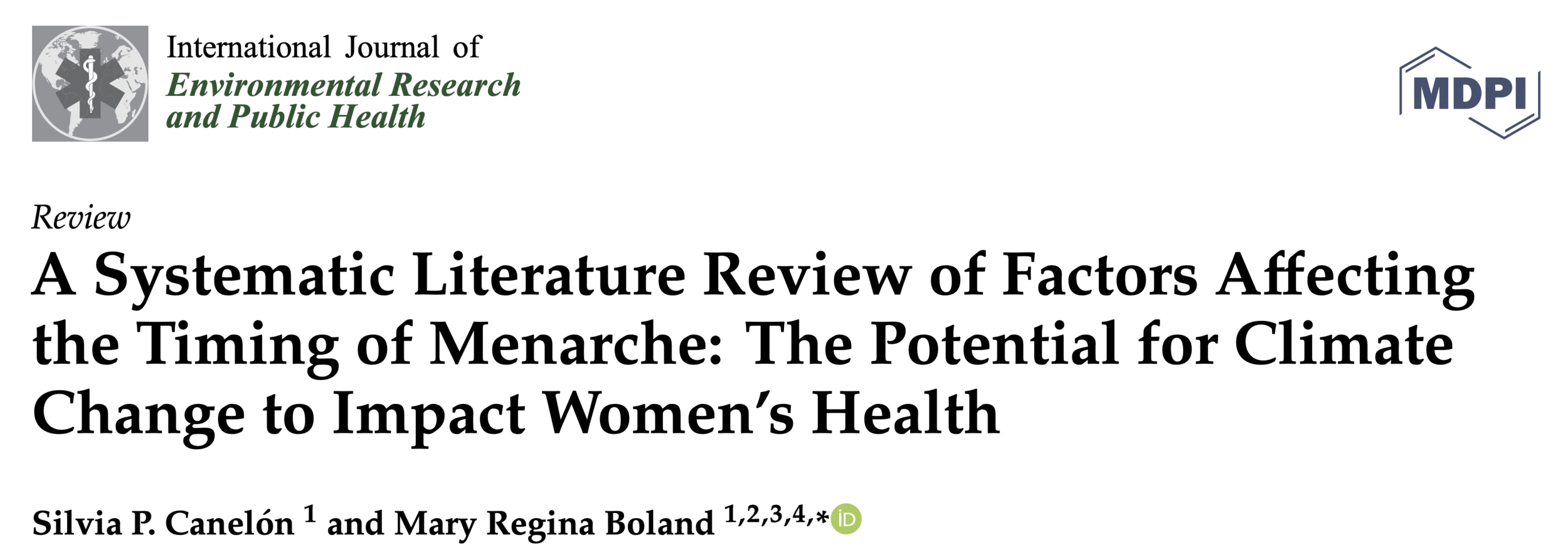Paper discussion

Kim Lab journal club
2020-03-12
menarche
noun
the first occurrence of menstruation
timing of menarche
noun
age at first occurrence of menstruation
Existing literature on the cause of decline in timing of menarche
- industrialized country
- adequate nutrition (height) and socioeconomic
- but not explain fully variation
- varies by country
- genetic and/or environmental causes
- obesity?
- BMI?
- adequate nutrition (height) and socioeconomic
climate change
noun
any changes in the climate that have occurred (focusing on past 100 years)
Systematic review
- Databases: PubMed, EMBASE, SCOPUS, Cochrane
- Query: timing of menarche, relevance to climate change
- Manually reviewed
- Filter out:
- non-human
- simply descriptive
- used as proxy for puberty but irrelevant
- mathematical modeling
- irrelevant
- Results: 112 articles
- disease causes/consequences
- social causes/consequences

Breakdown of 117 articles on timing of menarche

Mental health and psychological conditions were categorized as either diseases or social factors depending on the specific finding and research article.


Climate change → weather events → increase toxins in environment → crop availability, food intake, timing of menarche → increase disease burden: bone health, cardiovascular disease, mental health, and fertility-related conditions.
Late
Early
Causes menarche
age perturbations
Results from menarche age perturbations
Mental health
| Depression |
| Thoughts of self-harm |
| Fear |
| Distress |
| Externalizing disorders |
| Behavioral problems |
| Short stature |
| Elevated BMI |
| Increased Antral follicle count (~ increased fertility) |
| Premature menopause |
| Hysterectomy |
| Breast Cancer |
Fertility-related conditions
| Myelomingocele (a type of spina bifida) |
| Fat mass |
| Inverse association with BMI (i.e., heavier BMI - earlier menarche) |
| Metabolic syndrome |
| Insulin resistance |
Cardio vascular diseases
Carotid artery intima-media thickness
|
Fertility-related conditions
| Breast Cancer |
| Fetal loss |
| Longer time to first baby |
| Hirsutism (excessive body hair growth) |
Bone health
Osteoporosis
Other factors
Genetics
- Sex-hormone binding globulin SHBG
- Leptin receptor LEPR
- Paternally inherited DLK1 and MKRN3
Gene-environment interactions?